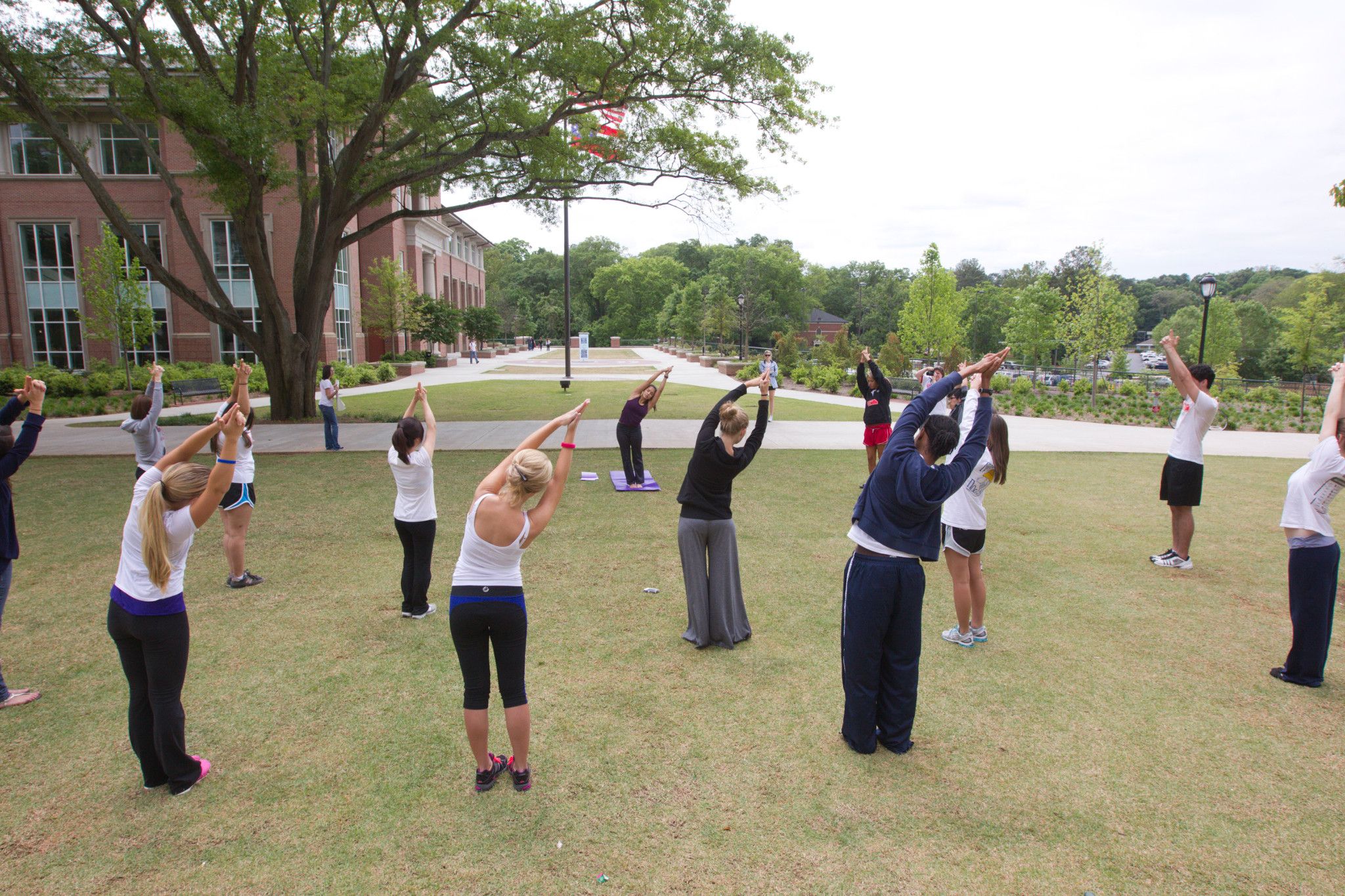A new University of Georgia initiative is enhancing campus-wide mental health and well-being resources to help students become more active, healthy and successful.
In his 2022 State of the University Address, President Jere W. Morehead noted the increased need for mental health and well-being resources for students at UGA and across the nation.
“Today’s college students face unique and difficult mental health challenges,” said Morehead. “Demand for mental health services has grown as students grapple with the pandemic alongside their educational responsibilities. To address this issue, we must foster a more supportive culture that emphasizes and sustains mental health and well-being.”
Morehead has asked Vice President for Student Affairs Victor K. Wilson to lead UGA’s efforts in this area and has dedicated $1 million in private funds over the next two years to expand and strengthen UGA’s extensive mental health and well-being offerings.
Initial plans for the president’s funding include increasing clinical resources and proactive communication and programming, dedicating spaces on campus for well-being support and innovation, and providing innovation and research grants to students for improving campus understanding and support approaches, to name a few of the dozen newly planned programs and services.
Wilson announced in his 2022 State of Student Affairs Address that his division will unite related units to formally integrate well-being into their work. Reporting to a new associate vice president for student well-being, the units include the University Health Center, Student Care and Outreach, Recreational Sports, the Disability Resource Center and University Testing Services. In addition to several medical clinics, the University Health Center includes Counseling and Psychiatric Services (CAPS); Health Promotion; Relationship and Sexual Violence Prevention (RSVP) and the Fontaine Center, which provides alcohol and other substance misuse prevention, early intervention and recovery support services. Together these units facilitate more than a million student interactions annually.
“We are stepping boldly into the future and accelerating our work to support our students,” said Wilson. “I am eager for students to realize the great benefits these efforts will afford, and I look forward to working with students, faculty and staff to bring this great potential to life.”
The university has significantly expanded its mental health and well-being support for students in recent years. In spring 2020, Student Affairs launched a Well-Being and Success Initiative as part of its 2025 strategic plan, creating a network of campus-wide programs and resources and convening campus leaders to coordinate support for students. The new network positioned the university to respond to student needs during the COVID-19 pandemic, as well as implement the University System of Georgia’s Mental Health Initiative when it was announced in fall 2020.
Bolstered by partnerships with JED Campus and Christie Campus Health over the past two years, UGA has developed a new strategic plan for well-being and launched several successful programs, including telehealth resources through the University Health Center’s Therapy Assistance Online (TAO), 24/7 access to CAPS, and centralized communication of well-being resources via a Well-Being Resources website, among other efforts.
Launched in August 2021, Well-Being Resources is a comprehensive website that provides convenient, efficient and affordable access to a broad range of clinical and nonclinical resources that support students’ mental health and well-being.
Additionally, the university has raised more than $1 million in private funding through the Sunshine Fund to support students in need, along with additional funding through government and campus partners to help students in emergent situations.
This massive effort reflects the University of Georgia’s commitment to supporting student well-being and success as a core priority for years to come.
“Together with our campus colleagues, we have done a lot to further our commitment to our students,” said Wilson. “But we’re not done — we will keep moving forward and accelerating our efforts to provide the best student experience possible.”
For more information about UGA’s well-being resources, visit https://well-being.uga.edu/.
For a list of proposed well-being programs and resources supported by Morehead’s funding, visit https://well-being.uga.edu/about-uga-well-being-resources/


